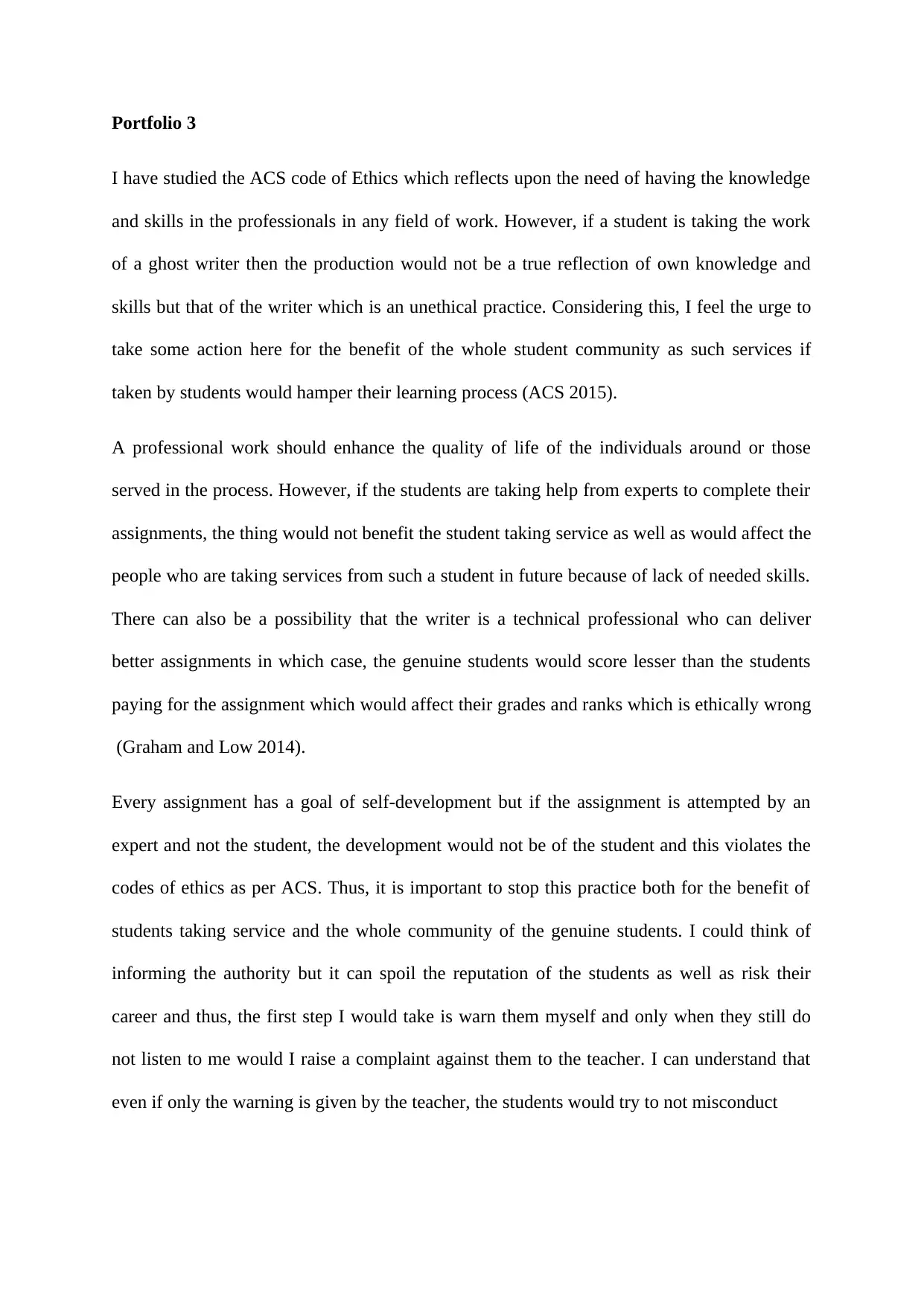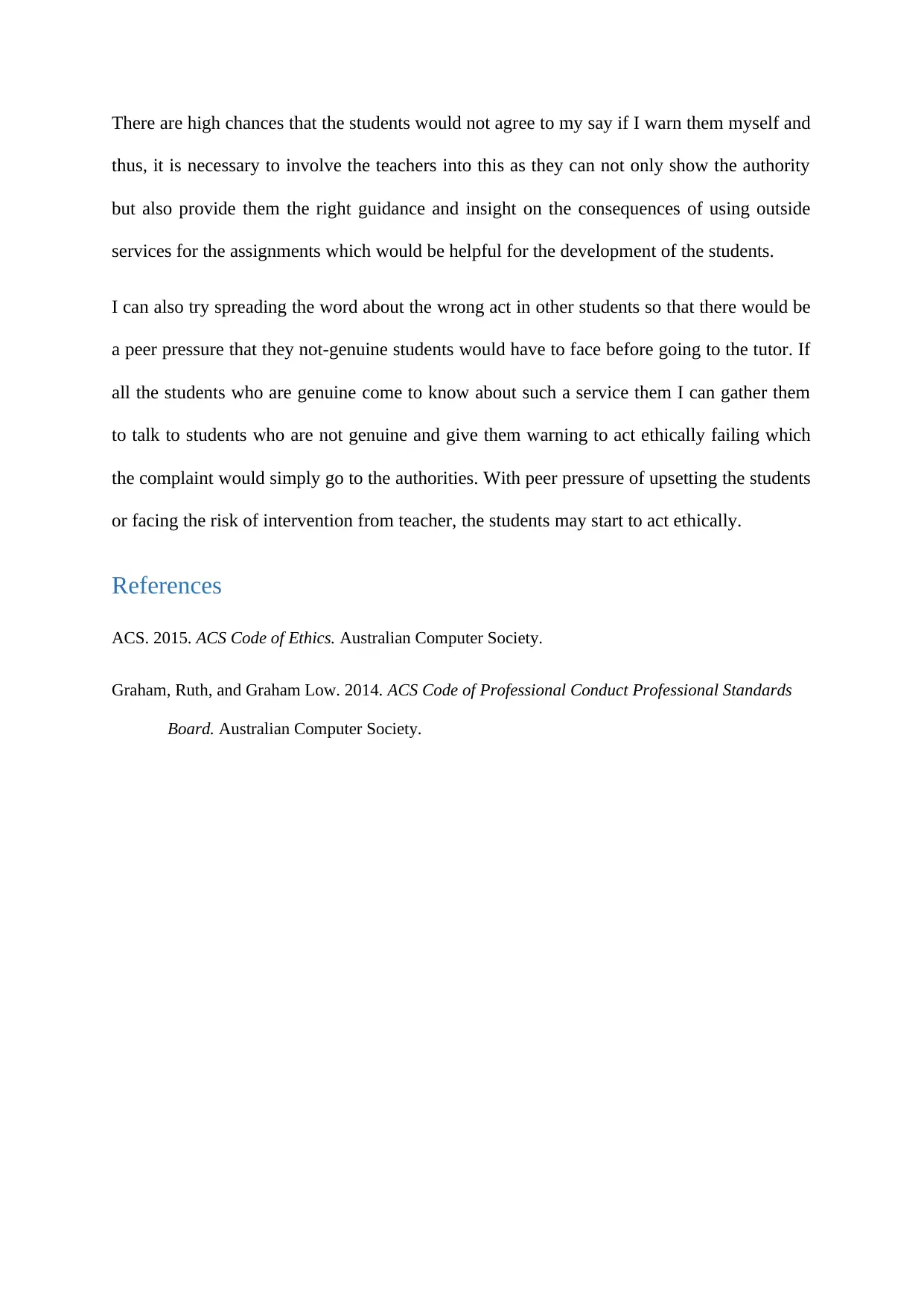Ethical Dilemma: Addressing Plagiarism in Computer Science Assignments
VerifiedAdded on 2021/05/30
|2
|580
|44
Homework Assignment
AI Summary
The assignment analyzes the ethical implications of using external services for computer science assignments, focusing on the ACS Code of Ethics and academic integrity. It discusses the negative impact of plagiarism on students' learning and future professional capabilities, highlighting the importance of original work and the development of necessary skills. The student proposes a course of action, beginning with a warning to the students involved, followed by involving the teacher, and finally, creating peer pressure to discourage unethical behavior. The aim is to address the issue of students using external services to complete assignments, emphasizing the importance of ethical conduct and the need to foster a genuine learning environment within the student community. The references include the ACS Code of Ethics and the ACS Code of Professional Conduct Professional Standards Board.
1 out of 2








![[object Object]](/_next/static/media/star-bottom.7253800d.svg)